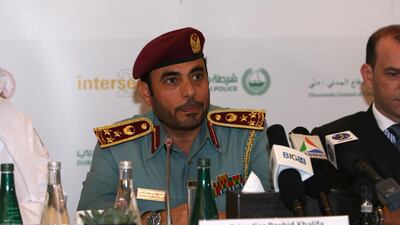Fires across Dubai will soon be a thing of the past, according to the emirate's Civil Defence who are working on implementing nanotechnology in commercial buildings to prevent disasters.
Speaking at a press conference on the details of the Intersec event, which kicks off in Dubai next week, Brig. Rashid Buflasa, director – general assistant for fire and rescue at the Dubai Civil Defence, said he hoped their new technology would be implemented in time for Expo 2020.
The technology is based around a material that is comprised of a solid layer with moisture built inside so when the solid begins to melt in heat, it produces water vapour.
The device will work by stifling the three elements needed to ignite a fire: heat, fuel and oxygen.
He said: "According to our statistics, most fires are electric, like short circuits and poor connections … We'll fix the nanotechnology inside the sockets, starting with commercial buildings like malls and warehouses, and eventually we'll go in to residential buildings."
Brig. Buflasa also said upgrading the police force's equipment was key to fighting crime and to preserve homeland security, adding that "the private sector will play a major role in providing us with latest tools in the field."
The Security Industry Regulatory Authority (Sira) told press conference attendees that it is to strengthen the level of its security guards across the country.
"We will improve both our manpower and our devices," said Khalifah Al Sulais, Sira's chief executive. "Dubai has a reputation for being one of the safest places in the world and we intend to keep it that way."
The security market in the Middle East has evolved drastically over the last 20 years, growing from US$52 million in 1998 to $12.2 bn in 2017. Its focus has shifted from simpler technologies such as pedestrian barriers, turnstiles, conventional access control systems and traditional surveillance cameras to more sophisticated technologies such as sensor-based cameras, automated traffic bollards and biometric access control systems.
Speakers at the press conference said video surveillance will be one of the largest areas of growth in the Middle East in both the homeland and commercial security markets. New evolving security trends will see a rise in security drones, smart storage solutions, artificial intelligence and T-rays, also known as terahertz, a safe form of electromagnetic radiation that is able to detect harmful gases or dangerous materials, and has potential uses in airport security.
Intersec will take place in Dubai next week from January 21 to January 23.

